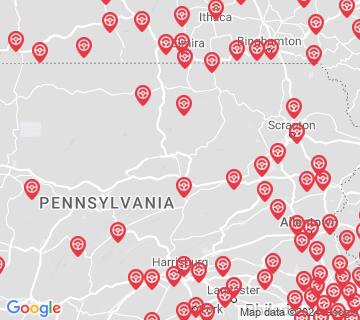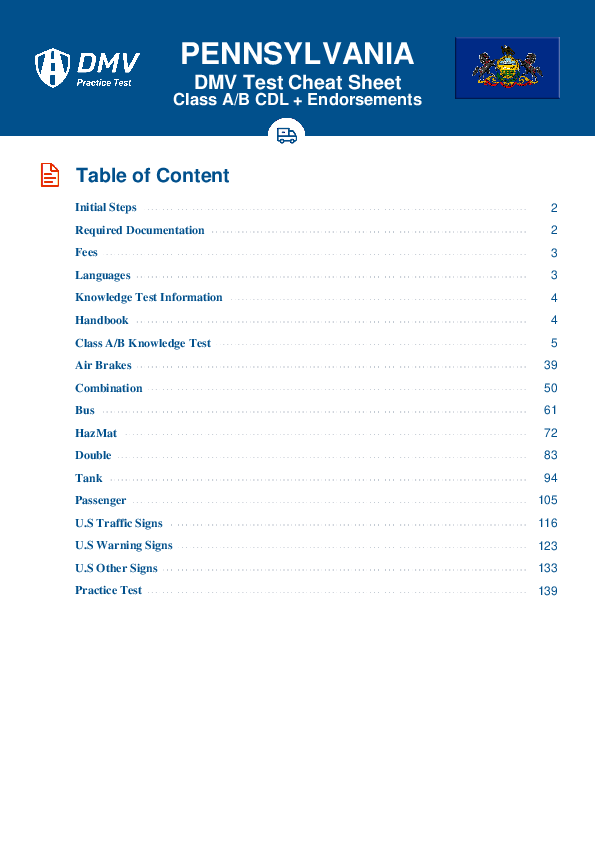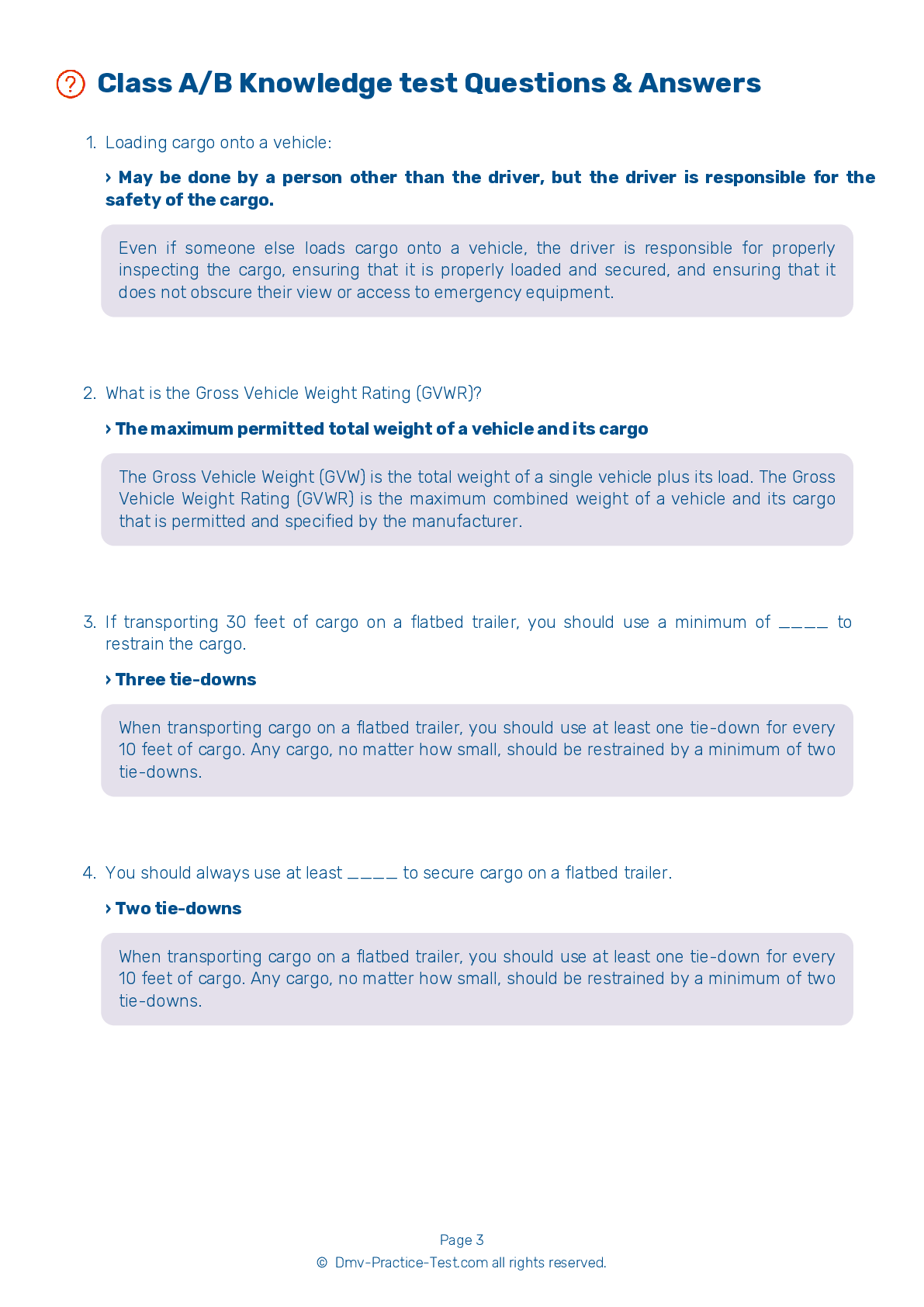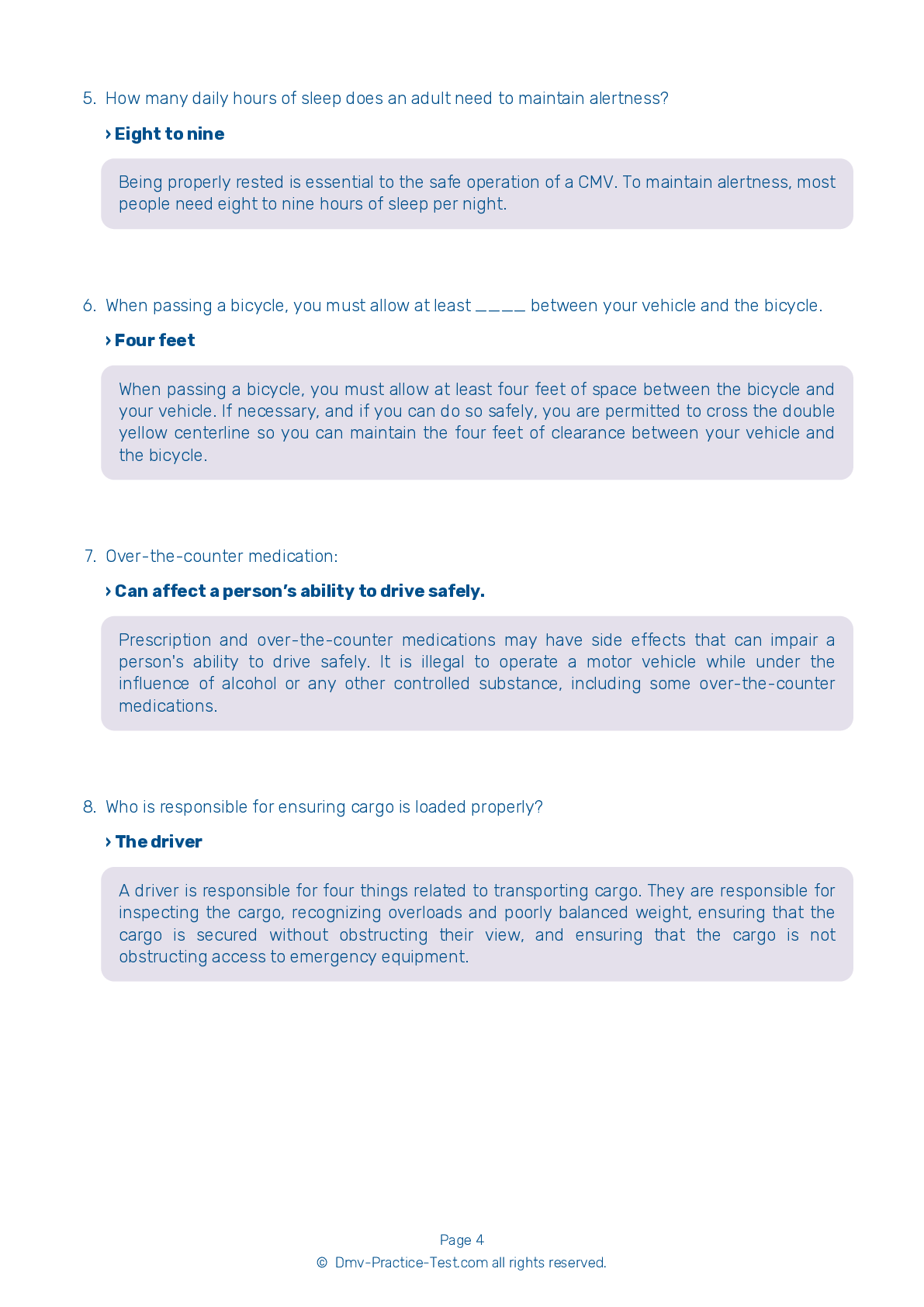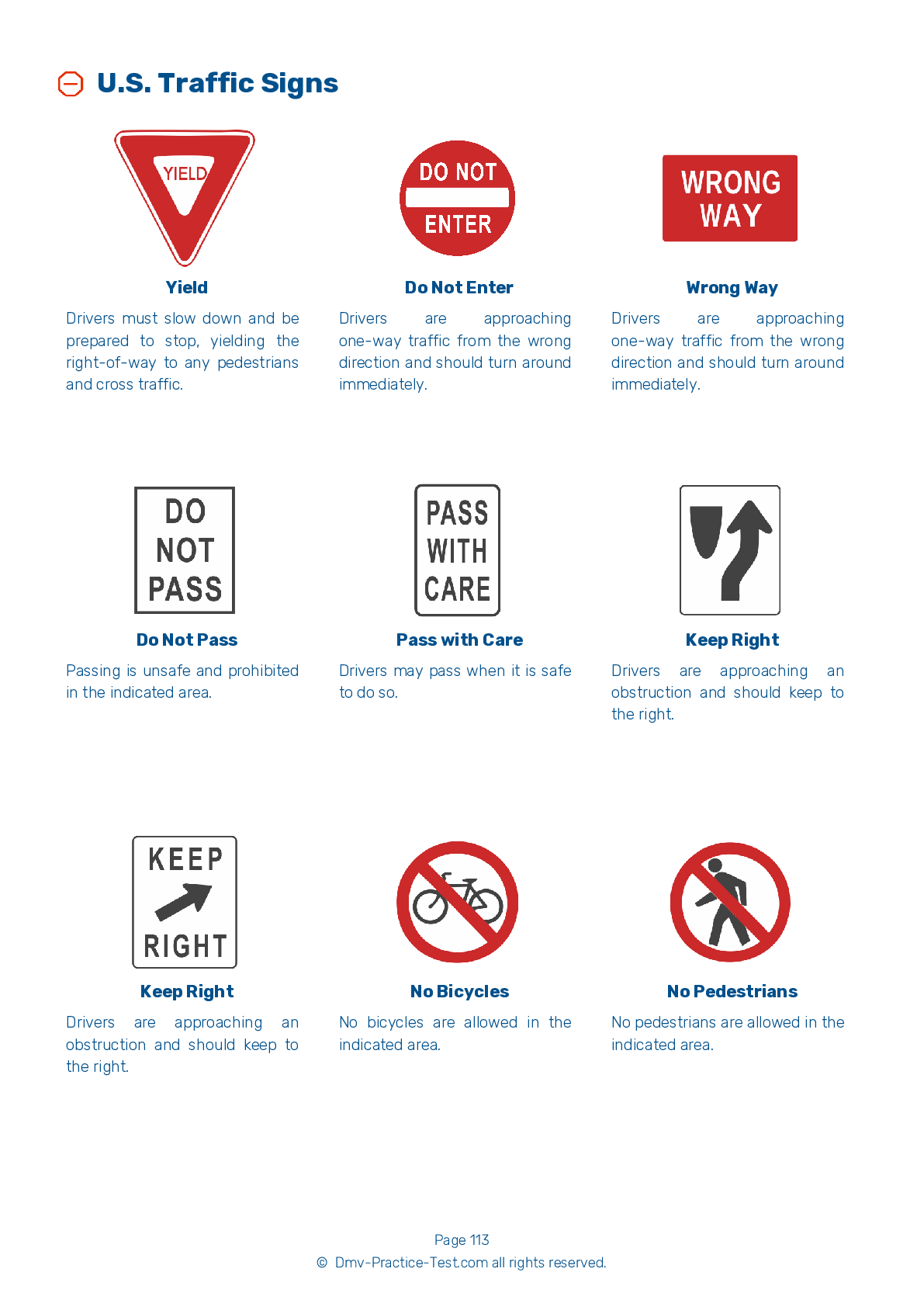Tank #1
Tank Endorsement Test | Pennsylvania 2026 #1 Page 3 of 3
Train for FREE with our Pennsylvania tank endorsement practice test online. The official exam test consists of several obligatory parts, with all of them checking your knowledge of different blocks of road rules. If you need to obtain a PA tank license in 2026, practice as much as possible. Free sample tests published on our website will help you check and improve your knowledge and boost your grades. Please bear in mind that DMV requirements for issuing a CDL tank vehicle endorsement may vary from state to state.
20
16
20
15 . If a leak is suspected in a cargo of radioactive material:
The driver should not operate the vehicle until it has been cleaned.
If you are transporting radioactive material and believe there is a leak or broken package in your cargo, you should tell your dispatcher or supervisor as quickly as possible. Do not touch or inhale the material. Do not use the vehicle until it has been cleaned or checked with a survey meter.
16 . A pre-trip inspection includes ____ basic steps.
Nine
There are seven basic steps to a pre-trip inspection. These steps include completing an overview of the vehicle; checking the engine compartment; starting the engine and inspecting inside the cab; turning off the engine and checking the lights; a walk-around inspection; checking the signal lights; and starting the engine and checking the brakes.
17 . Which condition increases a tank's stopping distance?
Cloudy weather
Keep in mind how long it will take for your vehicle to come to a complete stop. Empty tank vehicles may take longer to stop than those which are fully loaded.
18 . During a pre-trip inspection, what is the best method for checking your lights?
Driving in traffic and waiting for other drivers to let you know your lights are out
During a pre-trip inspection, you should activate your lights, then get out of the vehicle to look at them.
19 . During an inspection, it is most important to check your tank vehicle for:
Tires.
When inspecting any style of tank, the most important thing for a driver to check for is leaks. Transporting any type of gas or liquid in a leaking tank is illegal.
20 . A driver should stop after a short distance after changing a tire to:
Ensure that changing one tire did not damage another tire.
After a tire has been changed, you should stop after a short distance to re-check the tightness of the wheel nuts.
Search the best driving school in your neighbourhood
2026 Pennsylvania | Frequently Asked Questions
In Pennsylvania, to secure a CDL Bus endorsement, you must first have a Commercial Driver's License (CDL). You then need to pass a Passenger Endorsement Knowledge Test and a School Bus Endorsement Knowledge Test. After passing these, you'll need to complete a School Bus Skills Test which includes a pre-trip inspection, basic controls, and an on-road driving test.
To obtain a CDL Bus license in Pennsylvania, you must first hold a valid Pennsylvania driver's license. Next, apply for a Commercial Learner's Permit (CLP) and pass the CDL general knowledge test. After 14 days, take and pass the Passenger Endorsement and School Bus Endorsement knowledge tests. Finally, pass a School Bus Skills Test, which includes on-road driving.
Yes, specific training is necessary for a CDL Bus endorsement in Pennsylvania. You must pass the Passenger Transport Test and the Skills Test in a bus-like vehicle. Although not required by law, many employers prefer drivers with professional driving experience or training from a vocational school or community college.
In Pennsylvania, CDL Bus licenses fall under three main classifications: Class A, B, and C. Class A CDL is for vehicles with a combined weight over 26,001 pounds where the vehicle being towed is over 10,000 pounds. Class B CDL is for single vehicles over 26,001 pounds or towing a vehicle not over 10,000 pounds. Class C CDL covers vehicles designed to transport 16 or more passengers.
No, you cannot use your personal vehicle for the CDL Bus driving test in Pennsylvania. The vehicle you use for the test must match the class and type of vehicle you plan to drive with your CDL. Therefore, you should use a bus for your CDL Bus driving test, ensuring it meets all safety standards and regulations.
During the CDL Bus driving test in Pennsylvania, the examiner assesses your ability to perform various maneuvers and skills. These include pre-trip vehicle inspection, basic vehicle control (including backing up, turning, and parking), and on-road driving. On-road driving tests your ability to handle intersections, railway crossings, curves, and more. You'll also be evaluated on proper passenger safety procedures.
Yes, in Pennsylvania, to obtain a CDL Bus endorsement, you must pass a Department of Transportation (DOT) physical examination. This ensures you're physically capable of operating a commercial vehicle safely. The exam assesses various health aspects including vision, hearing, blood pressure, and checks for conditions like diabetes or heart disease that could affect your ability to drive.
No, it is illegal to transport passengers in Pennsylvania without a valid CDL Bus endorsement. This endorsement is necessary for any driver operating a vehicle designed to carry 16 or more passengers, including the driver. Driving without the proper license or endorsement can result in hefty fines, penalties, and even jail time.
Yes, a CDL Bus endorsement can be added to your existing CDL license in Pennsylvania. You don't need to apply for a new license. However, you must pass the necessary written and skills tests related to passenger vehicle operation. Once you pass, the bus endorsement will be added to your existing CDL license.
Yes, there are limitations for drivers with a CDL Bus endorsement in Pennsylvania. Drivers must not have more than two moving violations in a commercial vehicle in the past two years. They also cannot have any conviction for a disqualifying offense while operating a commercial vehicle, such as DUI, hit-and-run, or felony involving a vehicle.
